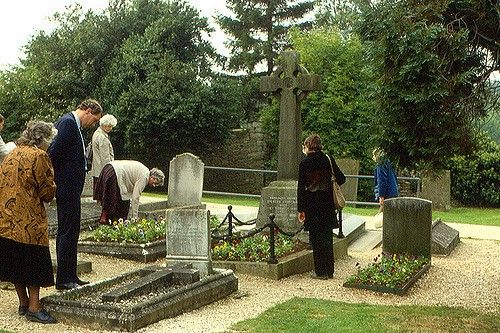 What Happens to Your Workers Compensation Case if You Die? Navigating through a workers’ compensation claim can be a lengthy and complex process. This is especially true if you’re dealing with severe injuries resulting from a workplace accident. These cases are not just about seeking justice. They are also about ensuring financial stability for you and your family during challenging times.
What Happens to Your Workers Compensation Case if You Die? Navigating through a workers’ compensation claim can be a lengthy and complex process. This is especially true if you’re dealing with severe injuries resulting from a workplace accident. These cases are not just about seeking justice. They are also about ensuring financial stability for you and your family during challenging times.
Workers’ compensation benefits may include payments for related medical expenses and Temporary Total Disability (TTD) benefits. TTD payments typically amount to two-thirds of your average weekly wage. However, if your injuries are extremely serious, or your overall health is poor, you may be wondering what will happen to your claim if you die. This may be especially concerning if you have small children or dependent parents.

The Fate of Your Workers’ Comp Case
What Happens to Your Workers Compensation Case if You Die? If you were to die from work-related injuries, your dependents may be eligible for death benefits by proving their reliance on you according to the workers’ comp laws. These benefits can be substantial, potentially offering weekly payments to dependent heirs for life, under certain conditions.
However, if your death Is unrelated to work injuries, your estate could be entitled to any Permanent Partial Disability (PPD) settlement aimed at compensating the permanent nature of your injuries. The settlement amount might be reduced, considering that the concept of “disability” involves future health deterioration. Unfortunately, any ongoing workers’ compensation benefits, including TTD and wage differential benefits, would cease with your death.
Ensuring Your Family is Protected
The workers’ compensation system offers numerous benefits to support injured workers, their families, and in the case of death, their primary beneficiaries. However, accessing these benefits requires navigating through a set of specific requirements.
One of the proactive steps you can take to ensure your family’s well-being is to make sure you understand these various benefits and how they apply to your situation. It may also be helpful to consult with an experienced workers’ compensation lawyer who can guide you through the process. Thus, ensuring you and your family are adequately protected.
Navigating Uncertainty
Navigating a workers’ compensation claim can feel overwhelming, especially when you’re facing serious injuries and all the uncertainty that accompanies them. However, it is important to remember the existence of support systems that are designed to assist you.
The entire system is structured to offer a safety net. This includes not only immediate financial assistance such as TTD benefits, but also provisions to ensure the well-being of your family in case of any unfortunate circumstances.. Whether your passing is work-related or not, there are provisions in place to support your heirs. So, you’re not alone in this!
The Value of Compassionate Legal Support
If you are truly concerned about the status of your claim, and whether your passing would leave your family eligible to receive Illinois’ workers’ compensation death benefits, it may be time to consult with a legal professional to help put your mind at ease.
What Happens to Your Workers Compensation Case if You Die?
An experienced workers’ compensation attorney acts as a guide, helping you navigate the complexities of your claim. They provide clarity and support. Thus, allowing you to make informed decisions and secure a strong legal representation for your family’s future.
<< BACK TO BLOG POSTS